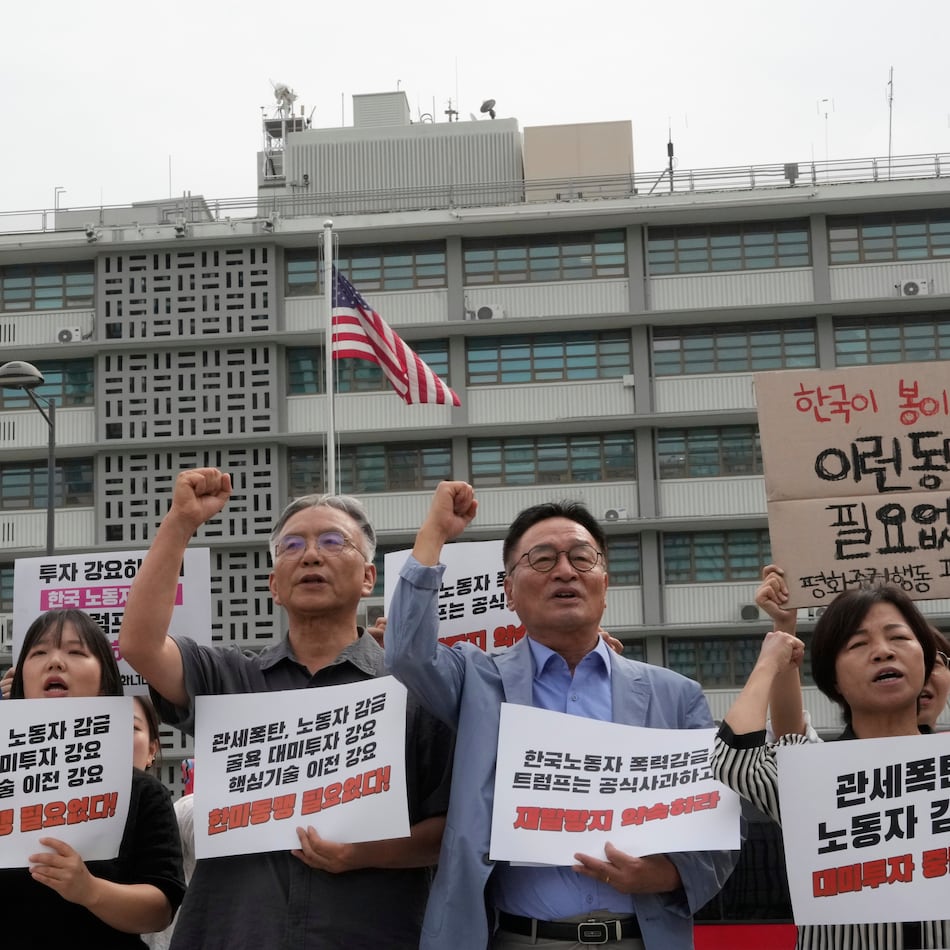WASHINGTON (AP) — President Donald Trump's emergency order over the nation's capital, which federalized its police force and launched a surge of law enforcement into the city, is set to expire overnight Wednesday after Congress failed to extend it.
But the clash between Republicans and the heavily Democratic district over its autonomy was only set to intensify, with a House committee beginning to debate 13 bills that would wrest away even more of the city’s control if approved.
Mayor Muriel Bowser’s office said the order expires at midnight. The National Guard and some other federal agencies will continue their deployment and it's not clear when that might end.
Trump's takeover of Washington's policing and Wednesday's discussions in the House underscore how interlinked the capital is with the federal government and how much the city's capacity to govern is beholden to federal decisions.
Trump's order federalized the local police force
For the last 30 days, the city's local Metropolitan Police Department has been under the control of the president for use in what he described as a crimefighting initiative.
Local police joined hundreds of federal law enforcement officers and agents on sweeps and roundups and other police operations. About 2,000 members of the National Guard from D.C. as well as seven states were also part of the surge of law enforcement.
Crime has dropped during the surge, according to figures from the White House and the local police department, but data also showed crime was falling in the lead up to the federal takeover.
Congress, satisfied by steps that Bowser has taken to ensure that the cooperation with the city will continue, decided not to extend the emergency, returning the police to district control.
But Bowser, who has walked a tightrope in collaborating with Trump in an effort to protect the city's home rule, must now pivot to a Congress that has jurisdiction over the city. The next order of business is a series of proposals that will be debated Wednesday by the House Committee on Oversight and Government Reform.
Some of the House bills focus on law enforcement
Thirteen of the bills call for repealing or changing D.C. laws. Some provisions in play would remove the district's elected attorney general, who recently asked a judge to intervene in the takeover. Others would allow the president to appoint someone to the position.
There is also a move to lower the age of trying juveniles to 14 from 16 for certain crimes, and one to change the bail system and remove methods the council can use to extend emergency bills.
Even if the bills pass the committee and House, the question is whether they can get through the filibuster-proof Senate. D.C. activists have already begun lobbying Senate Democrats.
Bowser urged the leaders of the House Oversight Committee to reject those proposals.
She argued that a bill sponsored by Rep. Paul Gosar, a member of the conservative House Freedom Caucus, would “make the District less efficient, competitive, and responsive.” She said she looks forward to working with the committee to build a “productive partnership” that “respects the will of D.C. residents and honors the principles of home rule.”
Republican Rep. Ron Estes and several Republican colleagues said they want their constituents to feel safe visiting the capital, and noted the recent murder of an intern who worked in Estes' office. “We want to make sure that we have a capital that Americans are proud of,” Estes said.
Members of the Republican Study Committee in the House held a news conference Sept. 2 praising Trump's intervention and supporting codifying his executive order.
“Congress has a clear constitutional authority over D.C., and we will use it without hesitation to continue making D.C. safe and great again,” said Rep. August Pfluger, chairman of that committee.
D.C. mayor says the bills challenge the city's autonomy
Bowser said the bills are an affront to the city's autonomy and said “laws affecting the district should be made by the district.”
The district is granted autonomy through a limited home rule agreement passed in 1973 but federal political leaders retain significant control over local affairs, including the approval of the budget and laws passed by the D.C council.
Bowser has said repeatedly that statehood, a nonstarter for Republicans in Congress, is the only solution.
———
Associated Press reporter Ashraf Khalil contributed to this report.
The Latest
Featured


